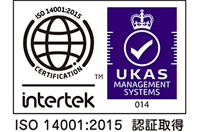connector, cable and wire, coolling fan, cable assembly, Control components, Various electronic components sale and wholesale
Akihabara/Sendai electric parts dealer Japan


The "RoHS Directive", a set of regulations issued in the EU regarding chemical substances used in electrical products and precision machinery, took effect in July 2006.
Amid the trend to switch to environmentally-friendly products, our company is also providing a lineup of ECO products.
We would be happy if they would be of any contribution to the sales expansion of your company.
An eco-cable is an environmentally-benign electric wire/cable that uses environmentally-friendly materials and materials with a reduced environmental impact. It is also called an "EM electric wire/cable".
In general, PVC (polyvinyl chloride) is widely used for the sheath and insulation parts of electric wires. However, they have been identified for their possibility to release dioxins upon combustion due to their containing PVC, as well as for their possibility of contaminating soil and groundwater by leaching lead compounds, used as stabilizers, upon being landfilled.
In contrast to conventional PVC cables, eco-cables use polyethylene resins. For this reason, they do not contain halogen elements such as chlorine or heavy metals like lead, and they are easy to recycle, earning them attention as environmentally-friendly products.
Eco-cables were standardized in 1998 by The Japanese Electric Wire & Cable Maker's Association upon request by the Ministry of Land, Infrastructure, Transport and Tourism. Standards have been established for eco-cables used in low voltage power, control, security alarm and communication applications. With the assumption that they are equal or superior to conventional PVC electric wires/cables in their general performance, they have been standardized under the following four conditions.
"EM" is used as a unifying name/symbol, where EM signifies "Eco-Material" and high flame resistance. In comparison with conventional PVC cables, EM wires have the following characteristics: